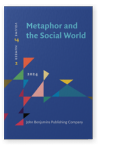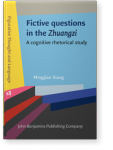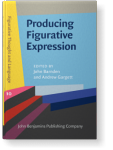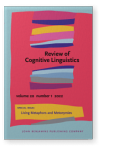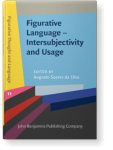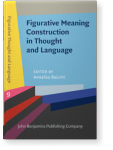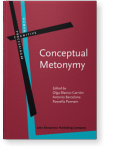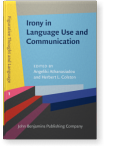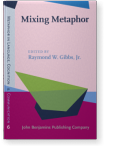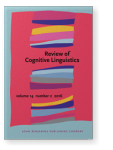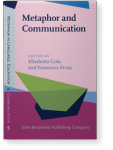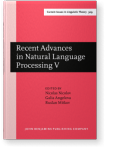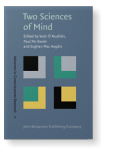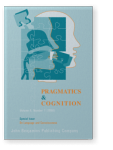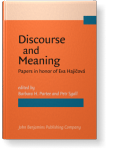John Barnden
List of John Benjamins publications for which John Barnden plays a role.
Journal
Book series
Title
Producing Figurative Expression: Theoretical, experimental and practical perspectives
Edited by John Barnden and Andrew Gargett
[Figurative Thought and Language, 10] 2020. viii, 549 pp.
Subjects Cognition and language | Discourse studies | Pragmatics | Psycholinguistics
2022 Metonymy, reflexive hyperbole and broadly reflexive relationships Living Metaphors and Metonymies, Brdar, Mario and Rita Brdar-Szabó (eds.), pp. 33–69 | Article
I explore some relationships between metonymy and a special type of hyperbole that I call reflexive hyperbole. Reflexive hyperbole provides a unified, simple explanation of certain natural meanings of statements such as the following: Sailing is Mary’s life, The undersea sculptures became the… read more
2021 Metaphor and irony: Messy when mixed Figurative Language – Intersubjectivity and Usage, Soares da Silva, Augusto (ed.), pp. 139–174 | Chapter
We address metaphor/irony mixing, as in ironic “What a rocket!” about a very slow train. We agree that the final meaning is often better viewed as resting ironically on metaphorical meaning (the train is very fast) than metaphorically resting on ironic meaning (the train is far from being a… read more
2020 Metaphor thoughtfully Figurative Meaning Construction in Thought and Language, Baicchi, Annalisa (ed.), pp. 13–44 | Chapter
Some Cognitive Linguistic theorizing and related psychological experimentation points to the active use of metaphorical, source/target relationships (mappings) in the mind even when external metaphorical communications are absent. However, some ramifications of this need attention. This article… read more
2020 Preface Producing Figurative Expression: Theoretical, experimental and practical perspectives, Barnden, John and Andrew Gargett (eds.), pp. vii–viii | Preface
2020 Introduction Producing Figurative Expression: Theoretical, experimental and practical perspectives, Barnden, John and Andrew Gargett (eds.), pp. 1–34 | Chapter
2018 Chapter 4. Some contrast effects in metonymy Conceptual Metonymy: Methodological, theoretical, and descriptive issues, Blanco-Carrión, Olga, Antonio Barcelona and Rossella Pannain (eds.), pp. 97–120 | Chapter
This chapter analyses important, variegated ways in which contrast arises in metonymy. It explores, for instance, the negative evaluation of the target achieved in de-roling, where the source chosen is a target feature that is largely irrelevant to the target’s role in a described situation,… read more
2017 Chapter 7. Irony, pretence and fictively-elaborating hyperbole Irony in Language Use and Communication, Athanasiadou, Angeliki and Herbert L. Colston (eds.), pp. 145–178 | Chapter
This article broadly adopts a well-known approach to verbal irony: taking ironic speakers to be engaging in pretence; and it follows others in viewing the pretences as (micro-)dramas created by the ironists, who act characters in the dramas. But it breaks new ground by strongly emphasizing the… read more
2016 Chapter 5. Mixed metaphor: Its depth, its breadth, and a pretence-based approach Mixing Metaphor, Gibbs, Jr., Raymond W. (ed.), pp. 75–112 | Article
The article sketches how a particular approach to metaphor, the ATT-Meta approach, which has been partially realized in an implemented AI program, copes with various types of mixing. Mixing here is broadly construed as including felicitous compounding, not only infelicitous mixes such as when there… read more
2016 Communicating flexibly with metaphor: A complex of strengthening, elaboration, replacement, compounding and unrealism Review of Cognitive Linguistics 14:2, pp. 442–473 | Article
This article argues that certain phenomena concerning metaphor that have been studied largely separately are in fact strongly interrelated, to the extent of forming an indivisible complex that should ideally be addressed in a unified way. The phenomena addressed here are metaphor compounding,… read more
2016 Metaphor and simile: Categorizing and comparing categorization and comparison Metaphor and Communication, Gola, Elisabetta and Francesca Ervas (eds.), pp. 25–46 | Article
Do understanders use comparison or categorization in understanding simile
and/or metaphor? I claim that the intense debate about this has been misguided,
partly because of the obscurity of the distinction between comparison
and categorization, and partly because of a frequent, misleading… read more
2009 Inference and domain independent mappings in metaphor understanding Recent Advances in Natural Language Processing V: Selected papers from RANLP 2007, Nicolov, Nicolas, Galia Angelova and Ruslan Mitkov (eds.), pp. 259–268 | Article
1997 Consciousness and Common-Sense Metaphors of Mind Two Sciences of Mind: Readings in cognitive science and consciousness, Ó Nualláin, Seán, Paul Mc Kevitt and Eoghan Mac Aogáin (eds.), pp. 311–340 | Article
1996 Unconscious gaps in Jackendoff 's "How language helps us think"? On Language and Consciousness, Jackendoff, Ray and Wallace Chafe, pp. 65–80 | Discussion
Jackendoff comes to some appealing overall conclusions, but several of his assumptions and arguments are questionable. The present commentary points out the following problems: oversimplifications in the translation-based argument for the independence of language and thought; a lack of… read more
1996 Your metaphor or mine: Belief ascription and metaphor interpretation Discourse and Meaning: Papers in honor of Eva Hajičová, Partee, Barbara H. and Petr Sgall (eds.), pp. 141–162 | Article
